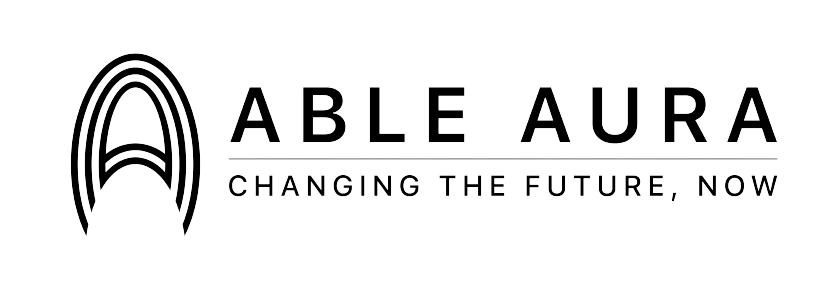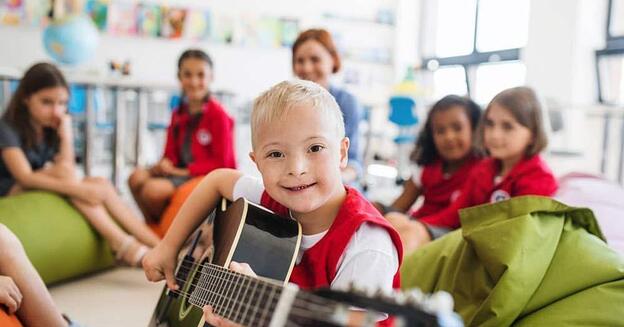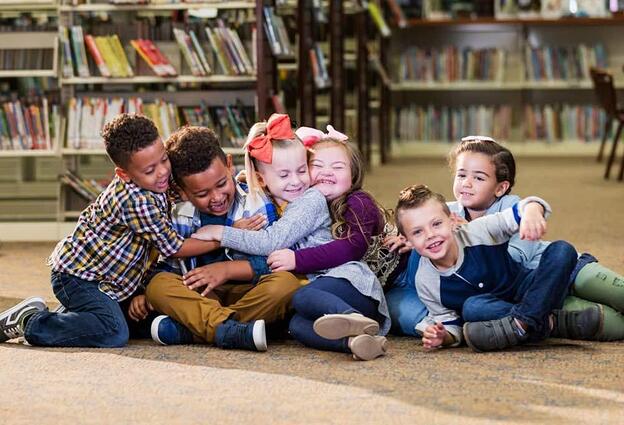For being a part of any society, everybody needs to learn social skills. These skills make a person an active member of society. Like any other person, a person with an intellectual disability always asks for acceptance in society. For a person who has disabilities related to Heller’s syndrome, autism or Asperger syndrome, social acceptance is a crucial thing that they need to learn so that the person can have peers around. Persons with intellectual disability need peers so that they can avoid chances of getting depressed or engage in any kind of unsocial activities. So here are 8 different social skills that can help a person with intellectual disability make friends.
Greet everybody!
A teacher or a parent of a person with intellectual disability needs to teach them to greet people. Greeting people can make the person happy. A sense of positivity can be shared by greeting people by saying “good morning” or “good evening”. Sometimes you can wish for a better day for your colleague or fellow students that can make them happy, and this skill can help a person with intellectual disability make people happy and get closer to them. Maybe your greeting with a smiling face can make one’s day.
Sharing and caring!
An person with intellectual disability needs to learn how to share and express their feelings towards another person. As an person with intellectual disability, you need to learn this social skill for having your mental health in good condition too. Showing care to the other person appropriately can be an essential social skill for attracting people. Even in a community, this can help construct good peer relationships. Even people facing problems with speaking use hand gestures to express their anger, joy and other emotions.
Request and acknowledgement
As a person with intellectual disability, you need to learn to say “Please” to ask for help or support from another person. You also need to say “Thank you” if someone helps you with something. These two words can be very effective if they depict your good manners in the outer world. From a very early stage, parents need to teach the use of these two words.
Initiating conversations!
Converse with people is essential for mingling in a group or community. Most people sometimes keep a distance from people who are different from them. For this reason, you should be the one who needs to start or initiate a conversation. You should start by greeting them and asking them about their day and health at first. You also need to give appropriate respect to people of the opposite gender. Fruitful conversation can be useful for making new friends.
Talking to the opposite gender
Like everyone, persons with intellectual disability are also attracted to people of the opposite gender. Most people feel shy to talk to them. Persons with intellectual disability also feel out of place when they have to talk or communicate with a person of another gender. Sometimes it can be difficult to communicate a feeling of attraction. So, this skill is mandatory so that a person with intellectual disability can communicate and make appropriate social relationships. It needs to be reminded that every person should be treated with respect, which is the key to starting a conversation.
Obey the law!
Knowing and following the law are crucial to living prosperously in a society. Even every society has its laws, so that should be acknowledged and followed. A person with a disability who follows the law is easily accepted in society. A person with intellectual disability should also know about the country’s laws where he or she resides.
Saying ‘no’!
Saying “no” to certain suggestions is also a skill that needs to be learnt by people with intellectual disabilities. You need to know about things you should not agree to or certain things you should not do. People with bad intentions sometimes take advantage of the person with intellectual disability, so you need to be aware of those people and also some offers that you have to reject and say a big “No” to.
Be a part of group activities!
As a person with intellectual disability, you have to participate in group activities in society. Taking part in social activities can make you a human who is essential for any community or society.
Social relationships and social acceptance are crucial for persons with intellectual disability. These skills need to be taught by playing or making them imitate these skills to get a spot in the society or the community they belong to. The parent or teacher has to play a major part in teaching these social skills.
Resources:
Video resource:




